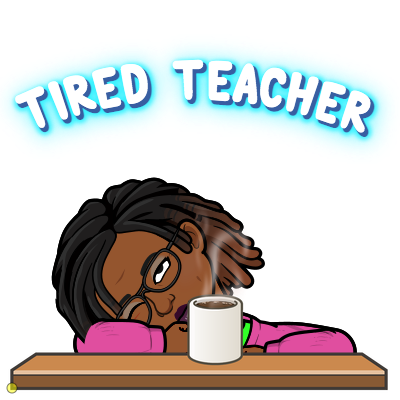I have been struggling with our upcoming knowledge sharing assignment. I think the problem is that I have too many big ideas. I want my students to all have access to the internet. I want my kids to all be fluent. I want them to know how to do all the things. In an ideal world, I would be able to go into my classroom on day one and incorporate every tool that we learned about in this class. I want all of these thing and I want them right now!
Here's the problem. I have to do the work. If I want my big ideas to work, I have to start small. The problem is that small sometimes feels too small. I always want to put my spin on it, to try and make it my own. For me, curating and sharing the content of other people feels a little dishonest. Even when you give credit, someone is getting the idea from you and they might attribute it to you. I am much more comfortable sharing something verbally, than I am sharing something in a online space.
I am starting to understand that sharing curated content is different than creating something new. Curation is about putting resources together in a way that best helps your targeted audience. I'm used to doing that for students, but not so much with adults.
I think I am going to work on collecting resources that will help teachers introduce online tools to their middle school classroom. I want to choose tools that can be used with a variety of subjects. I plan to choose two or three resources to start and move forward from there.


I think your concerns about others misattributing items we shared to us, as if we were the authors of them, is valid -- but the onus is on the person doing attribution to get it right. What does that mean? We need more education in this area!
ReplyDeleteI agree. Privacy and ownership is such a slippery slope. I think most teachers are sharers at their core, but sometimes it is upsetting when other people take credit for your work. Maybe the issue is that we have made education competitive on some level. Many school systems use test scores and student engagement as a way to compare educators. If you want to stay on top, you have to kind of keep some of your tricks to yourself. This is the wrong attitude, we all should be working together. I wonder how to get back there? I wonder if we were ever there?
DeleteI understand your feelings and I'm always in that state of mine that I want to find a way to use all the tools that have been introduced in this class everyday! But, I know that's not practical; it's practical for us to know that they are available and introduce them when we can. I'm not a middle school teacher, but I think tools like TinyLetter, Padlet, or blogging would be a great start for middle school students (I'm basing my opinion what I think would have been a starting point for my kiddos).
ReplyDeleteI agree that these tools need to be introduced slowly. I just get really excited when I think about how engaged the students would be if I could get all of these things up and running right now! In reality each new tool will require explicit instructions. Learners know how they use tools on a personal level, but they need to know how I expect them to use them for learning.
Delete